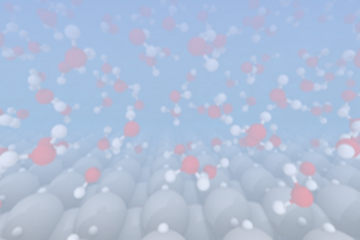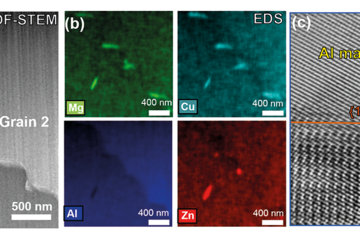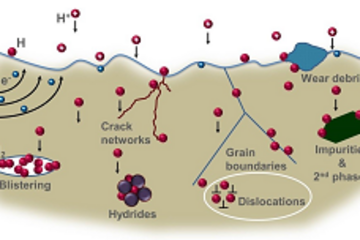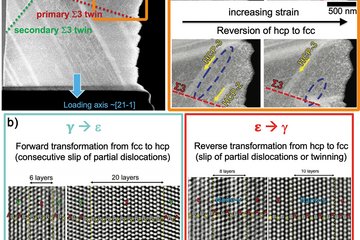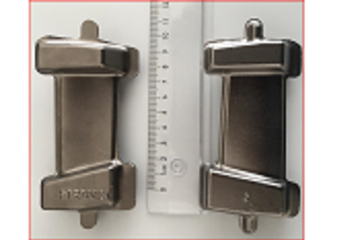All genres
341.
Poster
On the corrosion resistance of single grains of a new class of FeCrAl light weight ferritic steels. 5th International Symposium on Electrochemical Micro & Nanosystem Technologies, Tokyo, Japan (2004)
342.
Poster
Entwicklung eines universellen Wechseltauchsimulators für die Durchführung beschleunigter, zyklischer Korrosionstests. 76. AGEF Seminar, Düsseldorf, Germany (2003)
343.
Poster
Untersuchungen zum kathodischen Delaminationsmechanismus von Polymeren auf feuerverzinktem Stahl unter Berücksichtigung sich zyklisch ändernder Klimabedingungen. 76. AGEF Seminar, Düsseldorf, Germany (2003)
344.
Poster
Electrochemical Microindentation in Aluminium Single Grains. GDCH Jahrestagung 2003, Fachgruppe Angewandte Elektrochemie mit 8. Grundlagensymposium der GDCh, DECHEMA, DBG, München, Germany (2003)
345.
Poster
Electrochemical and corrosion investigations on LIP-steel and austenitic model steels of similar composition. GDCH Jahrestagung 2003, Fachgruppe Angewandte Elektrochemie mit 8. Grundlagensymposium der GDCh, DECHEMA, DBG, München, Germany (2003)
346.
Poster
Investigation of spatiotemporal potential and current distribution in microscopic corrosion cell. GDCH Jahrestagung 2003, Fachgruppe Angewandte Elektrochemie mit 8. Grundlagensymposium der GDCh, DECHEMA, DBG, München, Germany (2003)
347.
Poster
Quantification and modification of trap distributions in anodic aluminium oxide films. 53rd Meeting of the International Society of Electrochemistry, Düsseldorf, Germany (2002)
348.
Poster
The kinetics of simultaneous indium deposition and hydrogen evolution on indiumphosphide and gold. 53rd Meeting of the International Society of Electrochemistry, Düsseldorf, Germany (2002)
349.
Poster
Understanding the Role of Copper in FFC on aluminium alloys. 53rd Meeting of the International Society of Electrochemistry, Düsseldorf, Germany (2002)
350.
Poster
Simulation of the Potential Distribution in Scanning Droplet Cells. Hauptversammlung der Bunsen-Gesellschaft für Physikalische Chemie, Stuttgart, Germany (2001)
351.
Poster
Localised Investigation and Modification of Passive Materials with the Scanning Droplet Cell. 8th International Symposium on the Passivity of Metals and Semiconductors, Jasper, Canada (1999)
352.
Poster
Local Surface Energy Measurement on Gold by a Piezoelectric Response Combined with a Scanning Droplet Method. 49th Annual Meeting of the International Society of Electrochemistry, Kitakyushu, Japan (1998)
353.
Poster
Electrochemical Surface Imaging of Gold with a Scanning Droplet Cell. 2nd International Symposium on Electrochemical Microsystem Technologies, Tokio, Japan (1998)
354.
Poster
Spatially Resolved Pulse and Impedance Transients at Structured Oxide Films. 1st International Symposium on Electrochemical Microsystem Technologies, Düsseldorf / Grevenbroich, Germany (1996)
355.
Poster
Elektrochemische Messungen in bewegten Tropfen. InCom 96, Sondersymposium "Elektrochemische und Spektroskopische Analyse strukturierter Oberflächen am Beispiel von Sensoren und Werkstoffen", Düsseldorf, Germany (1996)
356.
Poster
Tröpfchenzelle für Ortsaufgelöste Elektrochemische Untersuchungen. 35. AGEF-Seminar "Korrosion und Korrosionsschutz", Iserlohn, Germany (1995)
357.
Poster
Lokalisierte Elektrochemische Untersuchungen im Elektrolyttropfen. Oberflächentechnik ´95, DGO 33. Jahrestagung, Fulda, Germany (1995)
358.
Poster
Ortsaufgelöste Elektrochemische Untersuchungen mit einem bewegten Elektrolyttropfen. 60. Bunsenkolloquium, "Struktur und Reaktivität von Elektrodenoberflächen", Jena, Germany (1995)
359.
Poster
Ladungstransport in ultra-dünnen Oxidschichten. 60. Bunsenkolloquium, "Struktur und Reaktivität von Elektrodenoberflächen", Jena, Germany (1995)
360.
Poster
Electron Tunneling Through Thin Aluminium Oxide Films. The Dielectrics Society 1995 Conference in conjunction with The Electrochemistry Group of the Royal Society of Chemistry, Impedance Spectroscopy at Electrodes and Interfaces, Canterbury, UK (1995)




